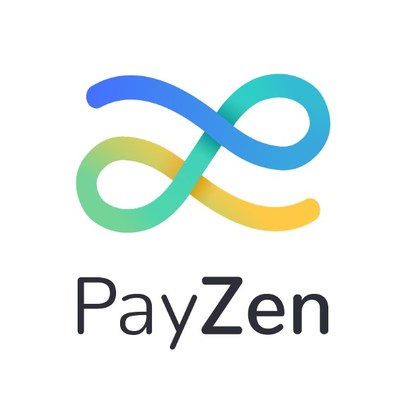PayZen Report Identifies Key Opportunities to Improve Patient Revenue Cycle and Enhance Affordability, Based on HFMA Findings
Key insights from 213 revenue cycle executives on how aligning billing strategies with patient affordability can strengthen collections, reduce bad debt, and expand access to healthcare.
SAN FRANCISCO, May 13, 2025 /PRNewswire/ -- PayZen, the healthcare fintech addressing healthcare affordability with AI-powered solutions, has released a new annual report — State of Healthcare Affordability: The Provider Perspective 2025 — based on a national survey conducted in partnership with the Healthcare Financial Management Association (HFMA). With participation from 213 healthcare systems ranging from $50 million to over $25 billion in net patient revenue (NPR), the report offers a first-of-its-kind set of in-depth industry benchmarks in patient billing and revenue performance. This provider-focused report complements its previous report from the patient perspective, expanding PayZen's industry-leading database of healthcare affordability KPIs.
Findings from PayZen's latest survey highlight a widening patient affordability gap and billing practices that are increasingly misaligned with patient financial realities as healthcare costs rise and high-deductible health plans become the norm. Patients are shouldering greater financial responsibility, while hospitals—often acting as de facto lenders—rely on short-term in-house payment plans that fall short of patient needs and leave revenue on the table, leaving both patients and providers underserved.
In a survey of 213 revenue cycle executives at hospitals and health systems, over three-quarters of all patient billings were reported as uncollected. Most in-house payment plans have default rates of 20–30% for terms longer than 12 months, leading many hospitals to limit the duration of payment plans.
- 58% offer in-house plans capped at 24 months
- 28% cap plans at 12 months or less
- 7% offer no payment plans at all
These terms don't align with what most patients can afford. According to PayZen's 2024 Healthcare Affordability Study, the average American can manage just $97 per month for medical expenses, with 21% able to pay only $15 to $30 per month. Assuming a monthly payment of $97, a 12-month plan works for a bill of less than $1,200, and a 24-month plan supports a medical bill of less than $2,350—far below many patient balances.
"Hospitals are burdened with bad debt because traditional billing practices and technology no longer reflect what patients can afford," said Itzik Cohen, Chief Executive Officer at PayZen. "Forward-thinking systems are beginning to see that innovation in finance is as necessary as innovation in care."
The report also shows that 30% of patient collections are tied up in open payment plans, representing significant cash flow that could be unlocked and an opportunity to reduce risk through strategic financing partnerships. Yet, 62% of providers do not work with third-party financing partners. Systems that implement longer-term, patient-friendly financing solutions see improvements across key revenue cycle metrics, including increased collections, higher utilization of payment plans, reduced bad debt, and happier patients.
Another key finding from the report highlights the impact of pre-service billing policies on financial performance. Hospitals that encourage or require pre-payment or a card on file report:
- 21% higher pre-service collection rates
- 20% higher overall collection rates
Still, only 19% of hospitals require prepayment, and just 3.8% require a payment method to be on file. When paired with clear estimates and inclusive patient financing options, pre-service payment policies can help providers improve revenue performance without compromising patient access to care.
The report comes at a critical moment, as proposed Medicaid cuts could affect 70 million Americans, leading to increased uncompensated care and reduced operating margins. The findings point to a sobering reality, but also illuminate key opportunities for health systems to adopt new strategies in their billing ecosystem and improve both patient and provider outcomes.
Cohen adds, "This data directly informs our product innovation and guides how we invest in AI alongside providers to chip away at the affordability crisis. Patient affordability is a systemic challenge threatening the financial health of systems nationwide. This report highlights the issues, but also offers a path towards a brighter future."
To access the full report, including key industry benchmarks, visit http://payzen.com/provider-perspective-report-2025.
About PayZen
PayZen is a mission-driven healthcare fintech company with smart technology and a patient-first mindset. Rated the top Patient Financing Company by KLAS, PayZen is expanding beyond financing and building a comprehensive AI platform that brings financial health to healthcare. The company is backed by premier capital partners and led by tech veterans with a track record of helping millions of Americans overcome financial struggles.
PayZen Media Contact
Kathy Osborne
607-434-2065
press@payzen.com
![]() View original content to download multimedia:https://www.prnewswire.com/news-releases/payzen-report-identifies-key-opportunities-to-improve-patient-revenue-cycle-and-enhance-affordability-based-on-hfma-findings-302453612.html
View original content to download multimedia:https://www.prnewswire.com/news-releases/payzen-report-identifies-key-opportunities-to-improve-patient-revenue-cycle-and-enhance-affordability-based-on-hfma-findings-302453612.html
SOURCE PayZen


